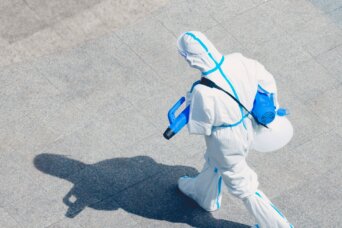- About
- Topics
- Picks
- Audio
- Story
- In-Depth
- Opinion
- News
- Donate
- Signup for our newsletterOur Editors' Best Picks.Send
Read, Debate: Engage.
| topic: | Digital Rights |
|---|---|
| located: | China |
| editor: | Stella Tsang |
When asking people in China to name a few crucial items during the coronavirus pandemic, they would probably reply “masks and health code” without hesitation. The latter, a real time health-tracking app that collects users’ travel and medical information while granting green QR codes to those deemed low risk has, become mandatory for visiting public spaces since early 2022.
However, more than just a tool to safeguard public health, the invention has turned out to be an instrument to maintain social order. In mid-June, local media reported that hundreds of bank depositors across the country had planned to protest in Zhengzhou city, Henan province, but were stopped as their health codes suddenly turned red. They intended to gain access to their frozen funds since four rural banks in Henan have frozen tens of billions of deposits since April, preventing customers from making withdrawals.
Besides triggering more concerns over rural banks’ financial risk in China, the situation was even worse when authorities in Zhengzhou admitted they had abused the health code system for other purposes, while punishing four local officials and one big data company executive on 22 June. Following the incident, other allegations of misuse were also reported.
As a matter of fact, controversies related to China’s health code have been non-stop since its launch, not only regarding political surveillance but also invasion of privacy. Some demand stronger statutory privacy protections for the collected data, while some believe it is just a matter of chaotic management by local authorities. For example, since health codes vary in different parts of China and are managed by different local governments accordingly, a National People's Congress deputy suggested the best solution is to let the central government take over all the systems for centralised management.
Urging the central government to solve local problems is a common narrative when catastrophic incidents happen in China. Before the health code scandal became the heated topic on social media, earlier this year, the human trafficking case of Xuzhou city’s eight-child mother had sparked nationwide debate. Likewise, some demand the central government to step in and punish local authorities for their mistakes. Nevertheless, whether it is getting to the root of the problem or blurring the focus remains uncertain.
While China’s dynamic zero policy and health code system remain in place, authorities at all levels should enhance the system’s transparency, as losing public confidence could do more harm to social stability.
Photo by Xiangkun ZHU

